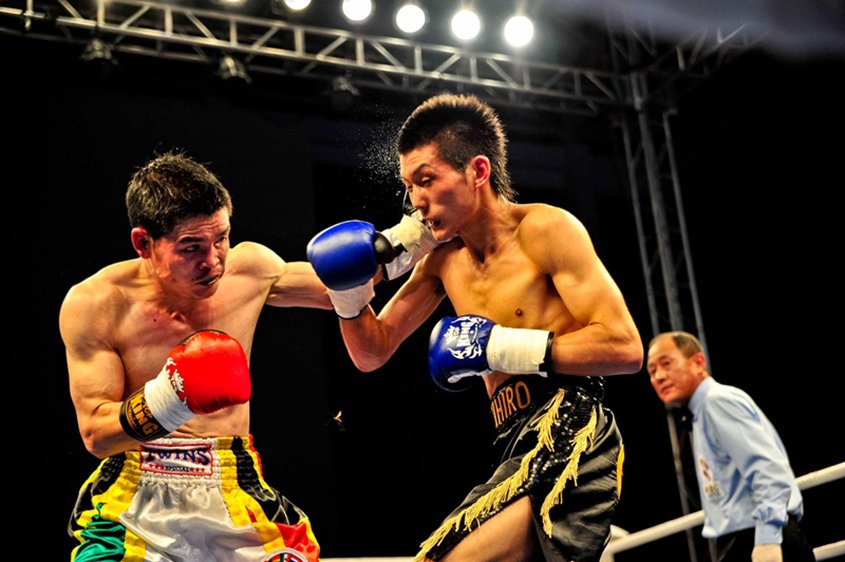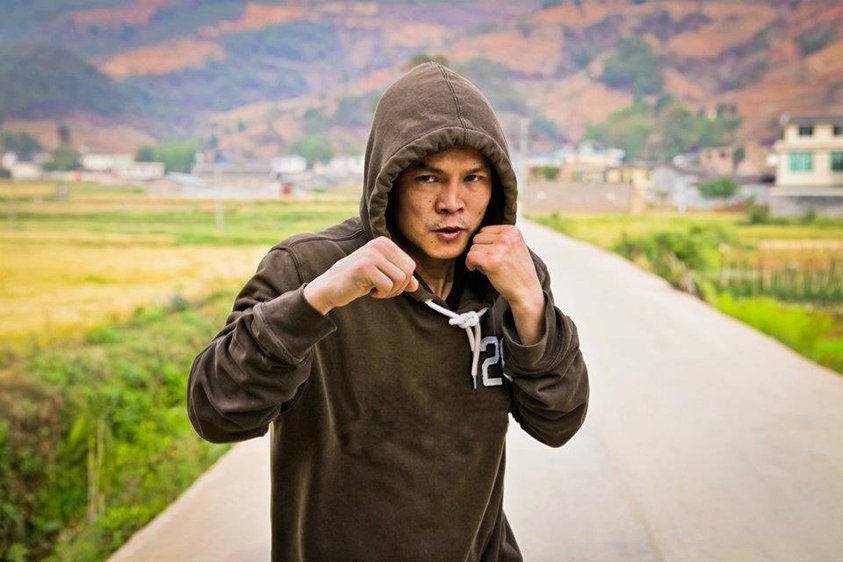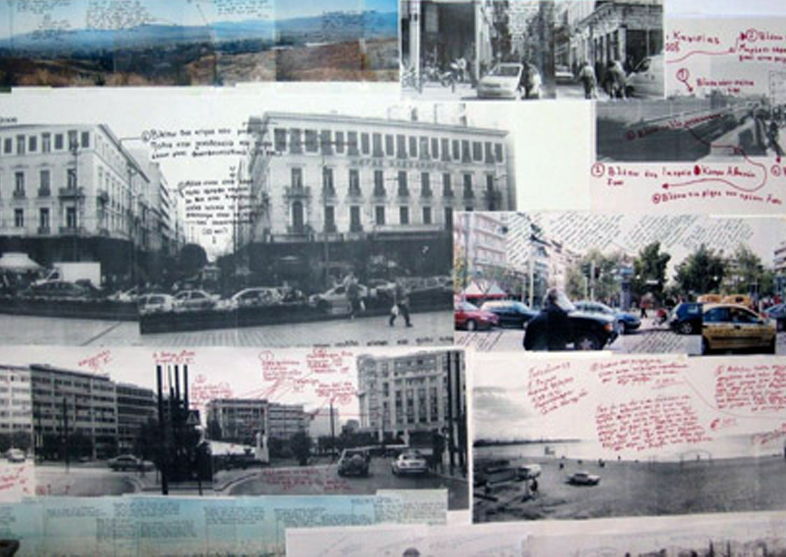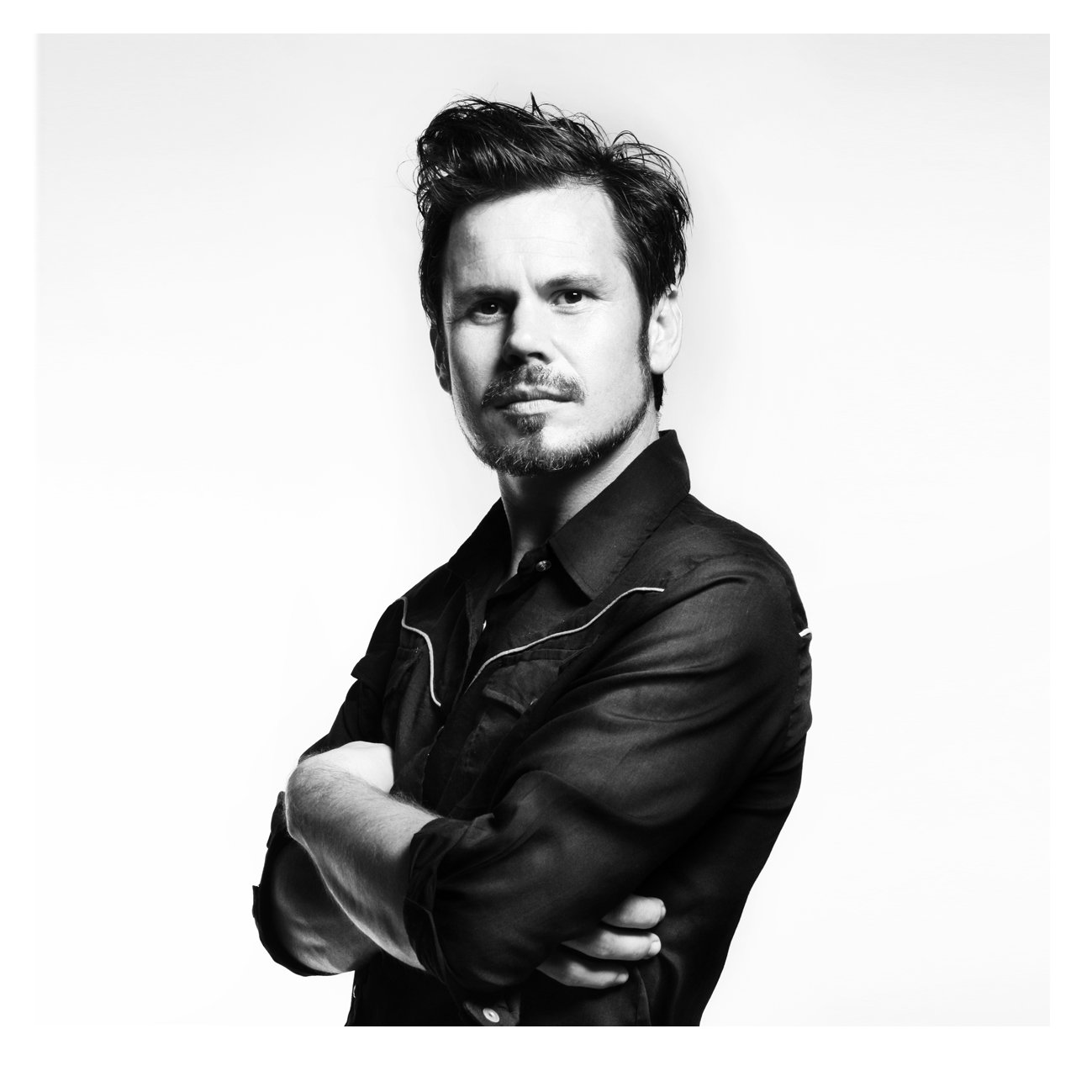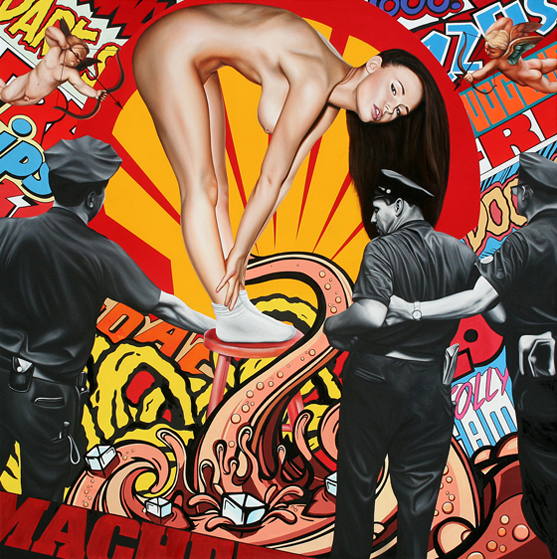Canada –
For Canadian-Chinese filmmaker Yung Chang, films are an interpretation of reality. His documentaries speak loudly of the struggle China is putting up in the age of globalization. While in one he is portraying its grappling transition towards consumer capitalism, in another he is focussing on the emergence of the new Chinese hero balancing Confucian ideals whilst adopting Western ethics. In his latest film, he goes around the world, exploring the art of fruit-hunting , along with exotic fruit cultivators and preservationists! In this interview, Yung Chang spells out his thoughts behind the conception to execution of his films, on matters close to his heart.
Emaho : Yung, when did you decide you wanted to make documentary films and why?
I realized I wanted to become a filmmaker or have something to do with the arts, when I was in high school. I wanted to tell stories, to experience life through other people’s lives and I wanted to feel deep emotion. But I was too shy to join the theatre department and too afraid to tell my parents. Eventually I got into photography and joined the film club. I started making elaborate, ambitious documentaries and experimental films with analog video. An English teacher showed us early video art by Colin Campbell, Midi Onodera and General Idea. My first documentary was simply titled “Jazz” and had almost an 8 minute intro on a black leader using the first track from Tony William’s ‘Live in Tokyo’ album. Pretty bad. Lesson learned: Never edit your own films.

China Heavyweight © Yung Chang
Emaho : One of the themes in your films has been the issues China is grappling with in this age of rapid modernization. According to you as an outsider artist, how is art playing a role in stirring a revolution within the Chinese people?
Art, and especially film, acts like a mirror to our souls. The commentary is not always so overt, or it does not have to be. But art has the power to make us reflect on our own humanity. It is that creative barometer that gives us the pause to consider our collective influence and how we may affect our future. For me, films are an interpretation of reality.

China Heavyweight © Yung Chang
Emaho : In a lot of places your movies resonate the ideals of the great philosopher Confucius, whom China still looks to, and at the same time battles his views in the current scheme of things. What has the response to such charged debates in the film’s narrative been like?
I think as Chinese society adapts and changes to the sway of modernization, more and more people are swept up by the inherent pressures and conflicts of greed and desire. And in fact, it often goes in direct conflict with Confucius’ beliefs. We’re at a crossroad where tradition clashes with modernization.

China Heavyweight © Yung Chang
Emaho : In that light, is your documentary ‘China Heavyweight’ a warning: what does success mean, and at what cost? Have you faced similar situations in life where you’ve stood at a crossroad weighing success vis-a-vis the price you pay for it?
Perhaps my film is a subtle warning, brought about by this fear of the effects of reckless capitalism. What happened to Deng’s “capitalism with Chinese characteristics”? I think the biggest threat is an overarching notion of moral vacuity. People are beginning to question the very meaning of success. Even in Wen Jiabo’s exit speech, he seems to feel a certain failure to quell corruption, social unrest, and inequality.

Fruit Hunters © Yung Chang
Emaho : Your latest film ‘The Fruit Hunters’ was in the top 10 on iTunes Movies in July. I’m sure it means a lot to you. Did you see it coming while you were working on the movie? What were your hopes from this documentary?
I had no idea we’d have such success with the film. At the least, my hope was to influence the audience to leave the theatre hungry for some sort of fresh and exotic fruit. But it seems we’ve inspired people to start their own fruit hunting clubs and demand for more fresh local produce from their supermarkets.
The Fruit Hunters – Official Trailer
Emaho : ‘The Fruit Hunters’ is a documentary about exotic fruit cultivators and preservationists; it’s inspired by the book of the same name. How did you come up with the idea of making this the subject of your film? What is the significance of this documentary for you?
At the same time as I was making ‘China Heavyweight’, I started the production of ‘The Fruit Hunters’. It was a wonderful reprieve to jump from a dramatic subject matter to something more light-hearted. The process of making the film was inspired by the fruits themselves. I let them be my guide to the people and places surrounding fruit. I was taken by the idea that fruit gives us hope. It stirred my imagination and I allowed the process of making this film to be very free not bounded by any approach. Talking heads, dream sequences, maquette recreations, spinning fruit… anything goes. It was a refreshing journey. I regret running out of the funding to take me to India for Alphonso and Kesar mangoes. Luckily though, a good portion of the film is an ode to the most beautiful fruit in the world.

Fruit Hunters © Yung Chang
Emaho : Yung, tell us about ‘China Heavyweight’. It is one of your most successful and well-known films. What was your motive behind making the documentary film and what were the techniques you used?
‘China Heavyweight’ is my version of a kung-fu film. It’s inspired by the Chinese ‘Wushu’ and American boxing movies. I wanted to use the microcosm of a rural boxing school and their coach to explore themes of failure and success in modern China. I like to make films, even documentaries, which feel cinematic, i.e. they can hold-up on the big screen and not just on TVs or computers. I like a film to have a narrative shape, to have nuances and complexities not so easily explained. My favourite films are the ones that leave you pondering and asking questions.
China Heavyweight – Official Trailer
Emaho : Boxing was banned in China until some time back since it was considered as capitalist, Western and violent, pitted against Kung Fu. I believe you were trying to portray the dilemma modern China is in, in terms of adapting to the new world as well as maintaining the inherent Chinese culture, isn’t it?
Yes, boxing was once banned for being too violent, capitalist and American. By transporting those themes into a Chinese context, I was hoping to observe those very conflicts in a changing Chinese society. This film is ultimately about failure. I love Coach Qi’s line to He Zongli when he tells him that one must learn to be successful in the face of failure. I suppose, through Coach Qi, I saw a metaphor for a modern hero, an idealist, someone who strives for maintaining virtues that seem to be getting lost in modern China. At the time I was filming, there were countless news reports about corruption – manufacturing of fake eggs, the children of wealthy corrupt government officials getting away with murder… Society seemed to be losing its moral core. So I saw Coach Qi as this very important hero who is reminding the country what it means to be Chinese.

China Heavyweight © Yung Chang
Emaho : The coach Qi Moxiang in ‘China Heavyweight’ indeed is a very inspiring character. How was it working with him in reality?
Coach Qi was definitely inspiring. He works so hard for so little. He’s selfless, and like I said above, a modern hero.

China Heavyweight © Yung Chang
Emaho : You’re writing your first feature film, “Eggplant”, about a Chinese wedding photographer. Tell us more about it? And what stage are you with the film?
I like to think feature defines both documentary and fiction, especially in this idea of the cinematic narrative. My first fiction feature is sort of a road-trip film. I can’t say much right now. I’m in the writing stage.

Up The Yangtze © Yung Chang
Emaho : You’re a versatile filmmaker making documentaries on diverse subjects. You are far away from being stereotyped but if you were to choose to make a particular kind of film, what genre would you select?
I like to think I’m not bound or restricted by any genres. I’m fond of everything. I recently re-watched the classic, ‘Sunset Boulevard’ – an amazing film.

Up The Yangtze © Yung Chang
Emaho : Which is your personal favourite among “Up The Yangtze” 2007,”China Heavyweight” 2012 and ”The Fruit Hunters” 2013 ?
An impossible question to answer. They are like my children.

Up The Yangtze © Yung Chang
Art & Culture Interviewed by Raksha Bihani
